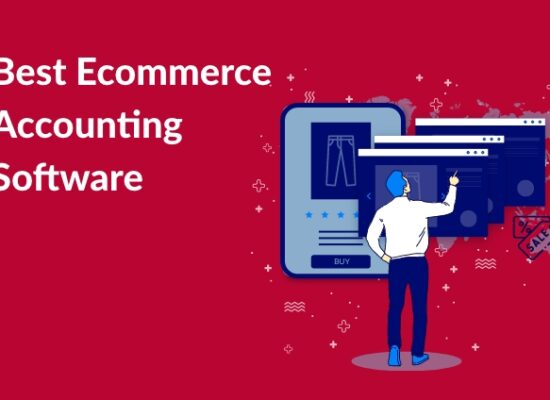- What is ecommerce automation?
- The rise of Ecommerce automation
- Best Ecommerce Automation Tools
- 1. Shopify Flow
- 2. Carstack
- 3. Salesforce E-commerce Cloud
- 4. ReCharge
- 5. Zapier
- 6. Keap
- 7. AutomateWoo
- Importance of ecommerce automation tools for businesses
- What categories of automation tools are there?
- Key considerations when selecting automation tools
- Final thoughts on the future of ecommerce automation

Have you ever wished you could create a duplicate of yourself to manage every aspect of your ecommerce business? While that isn’t exactly possible, automation tools are the next best thing.
Imagine yourself managing your online store while effortlessly handling marketing campaigns, order processing, customer care requests, inventory control, and more. How? with the use of powerful automation tools.
Similar to having a reliable companion, these software programs handle the minute details, freeing you up to concentrate on the larger picture. Businesses of all sorts, from modest Etsy stores to industry titans like Amazon are utilizing automation tools to increase profitability and streamline operations.
Read More : Ecommerce Marketing Strategies that Drive Results
What is ecommerce automation?
Using technology to simplify a variety of ecommerce operations including order processing, inventory management, customer support, and marketing is known as e-commerce automation.
Let’s say you own an online business where you sell handcrafted jewellery. You could utilise tools to automate some operations such as sending out purchase confirmations and shipping notifications to consumers, updating your inventory levels automatically when things are sold and even using customer data analysis to send individualised marketing messages.
Chatbots can also be used to answer routine client questions giving you more time to concentrate on more strategic facets of your company. With the aid of these automation solutions, you can manage your e-commerce operations more effectively and save a lot of time.
The rise of Ecommerce automation
An important development in online business operations is the rise of ecommerce automation technology, which is completely changing how businesses run their online stores.
This progression not only improves operational efficiency but also maximises the customer experience. By evaluating enormous information, automation solutions offer priceless insights that support data-driven decision-making and focused marketing campaigns.
The impact of automation is further amplified by integration capabilities which enable smooth coordination across multiple platforms and channels. All things considered, the development of ecommerce automation technology equips companies to survive and prosper in an increasingly digital environment.
Read More : How to Increase Ecommerce Sales?
Best Ecommerce Automation Tools
1. Shopify Flow

Shopify flow is an automation addition specifically meant for Shopify users. It is a top alternative for businesses trying to streamline their operations because of its versatility, usability, and wealth of customization choices. Shopify Flow is regarded as a useful tool for streamlining e-commerce operations and spurring expansion.
Some of its features are
- Workflow Creation: To automate tedious procedures and optimise your company processes, you can design unique workflows.
- Conditions: Your processes are highly configurable since you can use conditions to make sure they only execute when certain requirements are met.
- Events that Trigger: Flow lets you establish triggers depending on events such as the generation of an order, the amount of inventory, or customer activities.
- Integration: To increase automation possibilities, it easily integrates with third-party tools, other Shopify apps, and services.
- Actions: You can program Flow to carry out specific tasks like emailing recipients, updating inventory, or tagging consumers in response to trigger activation.
- Performance tracking: It allows you to keep an eye on how well your workflows are working and make necessary adjustments to maximize productivity and outcomes.
- Time Savings: By automating routines, you may free up time to concentrate on expanding your company instead of being mired in tedious manual procedures.
Price: Free
2. Carstack

It is an automation tool specifically designed to help businesses reduce cart abandonment and increase their sales.
Some of its features are
- Email Reminders: Carstack analyzes the information of customers who leave their carts and follow up with them via email at appropriate times to encourage them to complete the transaction.
- SMS Reminders: Carstack sms campaigns allow you to quickly and easily engage with your abandoners by sending them offers and gentle reminders straight to their cell phone.
- Push Notifications: Carstack utilizes push notifications to steadily cultivate a subscriber base that genuinely desires communication from you.
- On-Site Retention Tools: You can increase your retention and conversation rates by utilizing Carstacks comprehensive suite of conversation boosting tools.
Price: Basic plans start at $39 and pro at $69 per month.
Read More : 8 Key Software Tools for Ecommerce Operations
3. Salesforce E-commerce Cloud

It is an automation tool developed to guide businesses to expand online.
Many people consider Commerce Cloud to be among the best ecommerce automation solutions out there. In the tech sector, Salesforce is a reputable brand with a solid reputation for dependable products.
Some of its features are
- Unified Commerce Platform: This platform offers a single location to manage orders, inventory, storefronts, and marketing initiatives, among other e-commerce-related tasks.
- Omnichannel Capabilities: It lets companies easily combine their offline and online sales channels so that customers can browse, buy, and return goods from a variety of touchpoints.
- Marketing Automation: To engage customers and increase sales, it comes with built-in marketing automation capabilities for social media integration, email campaigns, and targeted promotions.
- Integration: To improve functionality and optimize processes, Commerce Cloud connects with other Salesforce products as well as external programs like payment gateways and ERP systems.
- Analytics and Reporting: It provides powerful analytics and reporting capabilities to monitor marketing ROI, customer behaviour, and sales success allowing for data-driven decision-making.
Price: It depends on the plan.
4. ReCharge

ReCharge is specifically designed for e-commerce companies who offer subscription services. It is a priceless tool for automating recurring charging, managing subscriptions, and increasing customer retention.
Some of its features are
- Subscription Management: With its comprehensive features, ReCharge enables businesses to set up and manage subscription goods with ease.
- Automated Recurring Billing: ReCharge takes care of invoice generation, payment collection, and subscription renewals by automating these tasks.
- Personalised Checkout Experience: ReCharge enables companies to personalise the checkout process for customers, offering a streamlined procedure.
- Customer Retention Tools: ReCharge provides features and tools intended to boost lifetime value and enhance customer retention. This includes choices for providing subscribers with special offers and loyalty benefits.
- Integration with Ecommerce Platforms: ReCharge easily interfaces with well-known e-commerce platforms like BigCommerce, WooCommerce, and Shopify, allowing companies to take advantage of their current workflows and infrastructure.
Price: Starts from $30 per month.
5. Zapier

Zapier is well known for being a flexible and simple-to-use tool for automating operations, especially in the e-commerce industry. Zapier is regarded as one of the top e-commerce automation solutions enabling companies to increase productivity, automate time-consuming processes, and concentrate on expansion and innovation.
Some of its features are
- Integration Hub: Popular e-commerce systems like Shopify, WooCommerce, Magento, and others can be seamlessly integrated with Zapier.
- Multi-Step Zaps: For e-commerce companies trying to coordinate complex processes involving several actions including order fulfilment procedures or customer interaction campaigns, this functionality is priceless.
- Workflow Automation: Users can automate repetitive operations in e-commerce by using Zapier workflows. You can send clients customised emails based on their past purchases, instantly update inventory across several platforms, and seamlessly sync fresh customer data from your e-commerce platform to your CRM.
- Simple Setup and Management: Users don’t need a lot of technical knowledge to build, change, or manage Zaps due to Zapier’s user-friendly interface and simple drag-and-drop editor.
- Customization Options: To improve accuracy and control over automation, users can configure conditional logic, filters, and delays to make sure that Zaps only activate under particular circumstances or at predetermined periods.
Price: Starts from $19 per month.
Read More : Top Ecommerce Tools Every Entrepreneur Should Use
6. Keap

Keap is a feature-rich marketing automation and CRM tool made to support the expansion of small enterprises. With its extensive feature set for CRM, marketing automation, and e-commerce connection, Keap is the perfect choice for small businesses.
Some of its features are
- CRM Integration: Through the management of customer data, interaction tracking, and behaviour-based customer segmentation made possible by this integration, firms may target their marketing and sales efforts.
- Ecommerce Integration: Businesses may sync product information, orders, and customer data between their CRM system and e-commerce site by integrating Keap with well-known e-commerce platforms like Shopify, WooCommerce, and Magento.
- Automated Marketing Campaigns: To build and automate email campaigns, follow-ups, and customised communications, Keap provides strong marketing automation capabilities.
- Reporting and Analytics: Companies may optimise their marketing and sales strategies and make data-driven decisions by gaining insights into customer behaviour, campaign performance, and revenue creation.
- Sales Management: Keap offers solutions for automating sales procedures and controlling the sales.
Price: It depends on the plan you choose.
7. AutomateWoo

Strong marketing automation tool called AutomateWoo was created especially for WooCommerce, the well-known WordPress-based e-commerce platform. For e-commerce companies seeking to boost sales and simplify operations, AutomateWoo is a perfect tool.
Some of its features are
- Personalised Email Marketing: AutomateWoo gives companies the ability to design customised email campaigns based on past purchases and consumer behaviour.
- Abandoned Cart Recovery: Businesses may recoup lost purchases by using AutomateWoo’s powerful abandoned cart recovery services.
- Dynamic Pricing and Discounts: Businesses may use AutomateWoo to develop discount and dynamic pricing methods to encourage purchases and boost client loyalty.
- Advanced Workflow Automation: AutomateWoo offers the ability to automate almost any part of the e-commerce experience from sending personalised birthday greetings to rewarding loyal customers with unique offers or automating product recommendations based on past purchases.
- Subscription Automation: To optimize recurring revenue and simplify subscription administration, users can establish automated workflows for client contacts, billing reminders, and subscription renewals.
Price: It depends on the plan you choose.
Importance of ecommerce automation tools for businesses
For a number of reasons, automation tools are essential to e-commerce companies’ success.
- Automation frees up time for e-commerce enterprises to concentrate on product development and marketing by streamlining repetitive chores.
- Automation helps e-commerce companies expand without increasing the amount of human labour required.
- Automation improves the total customer experience by enabling round-the-clock support, individualised communication and speedier order processing.
- Although human error will always occur, automation reduces the possibility of errors in repetitive processes.
- Large-scale data on customer behavior, sales patterns, and inventory levels are gathered and analyzed by automation tools, which yields insightful information that helps e-commerce companies make better decisions and adjust their tactics.
Read More : The Ultimate Guide to Ecommerce Business Insurance
What categories of automation tools are there?
Based on their function and goal, automation tools can be divided into a number of groups. These are a few typical categories
Marketing automation:
It refers to the tools used to automate marketing tasks like lead nurturing, social media posting and email campaigns.
Workflow automation:
It refers to the tools used to automate corporate processes like task assignments, document approvals and notifications.
Data automation:
It refers to the tools used to automate operations related to data processing such as data extraction, transformation and cleansing.
Infrastructure automation:
It refers to the tools used to automatically provision, configure, and maintain IT infrastructure including networks, servers, and storage.
Chatbot Automation:
Instruments for utilising chatbots to automate customer service and communication.
Sales automation:
It refers to the tools used to automate various sales activities, such as lead generation, CRM, and sales forecasting.
Inventory automation:
It includes tools that are utilised to automate inventory processes such as keeping track of orders and stock levels.
Key considerations when selecting automation tools
A number of crucial factors must be taken into account when choosing automation tools for an e-commerce company in order to guarantee that the final product successfully satisfies the unique requirements and goals of the enterprise.
Compatibility and Integration:
Verify that the automation tools work with the company’s other key systems or tools such as its current e-commerce platform.
Customization:
Search for automation tools that provide the ability to modify workflows and procedures to meet the unique needs and preferences of the e-commerce company.
Scalability:
Select automation tools that can expand with your e-commerce company as it grows.
Ease of Use:
Choose automation tools that are simple to use so that staff members with different degrees of technical proficiency can adopt and utilise it with ease.
Security:
Give top priority to security features and procedures to guard sensitive data from possible cybersecurity attacks or breaches, including customer information, payment information and corporate operations.
Reliability and Support:
Verify that there is little downtime or technical difficulties with the automation tools, and that it is stable and dependable. In addition, take into account the customer assistance availability and calibre, which can help with installation and continuing support.
Cost and ROI:
Compare the automation tools affordability to the anticipated return on investment (ROI).
Organisations can select automation tools that effectively fulfils their goals, improves productivity, and propels growth and success in the digital marketplace by carefully weighing these important elements.
Final thoughts on the future of ecommerce automation
Automation is not merely a craze in the rapidly changing e-commerce industry, rather it represents a fundamental change in how companies run and prosper in the digital era. The automation of e-commerce has a bright future ahead of it.
Processes will continue to be streamlined via automation, increasing the effectiveness and economy of e-commerce operations. The integration of automation technologies will grow, enabling smooth processes across many channels and platforms.
Businesses will be able to handle every aspect of their e-commerce ecosystem from a single interface due to this integration, which will streamline processes and increase flexibility.
Hyper-personalized shopping experiences will be made possible by e-commerce automation with the aid of AI and machine learning. Deeper insights into consumer behavior, market trends, and operational performance will be made possible by e-commerce automation. Businesses will be able to anticipate customer wants, proactively fix issues, and provide better experiences by automation.
There are a plethora of opportunities in the realm of e-commerce automation and the correct tools might be the game-changer your company needs. The best ecommerce automation tools helps businesses succeed in a changing digital environment by improving customer experiences and optimizing operations.
Investing in automation may help your online store reach new heights of productivity, scalability, and profitability, regardless of its size. As we’ve looked at a few of the best options available, keep in mind that the secret is to identify the one that best suits your particular requirements and objectives.
FAQ’s
Why is e-commerce automation crucial and what does it entail?
E-commerce automation helps firms run more smoothly and grow by automating repetitive tasks like order processing, inventory management and customer support.
Which profitable companies have made use of e-commerce automation software?
Smaller companies like boutique online stores that use automation technologies for inventory management and customer care, as well as major retailers like Amazon, who use automation technology for order fulfilment and logistics.
In what ways may the consumer experience be enhanced by e-commerce automation?
By enabling quicker order processing, more individualized communication, round-the-clock chatbot help and customized marketing campaigns, automation technologies can improve the customer experience.
How can I pick the best ecommerce automation for my company?
When choosing the best automation tools for your company’s requirements take into account aspects like cost-effectiveness, customer support, scalability, customization possibilities, compatibility with your e-commerce platform, ease of use, reliability and security features.



